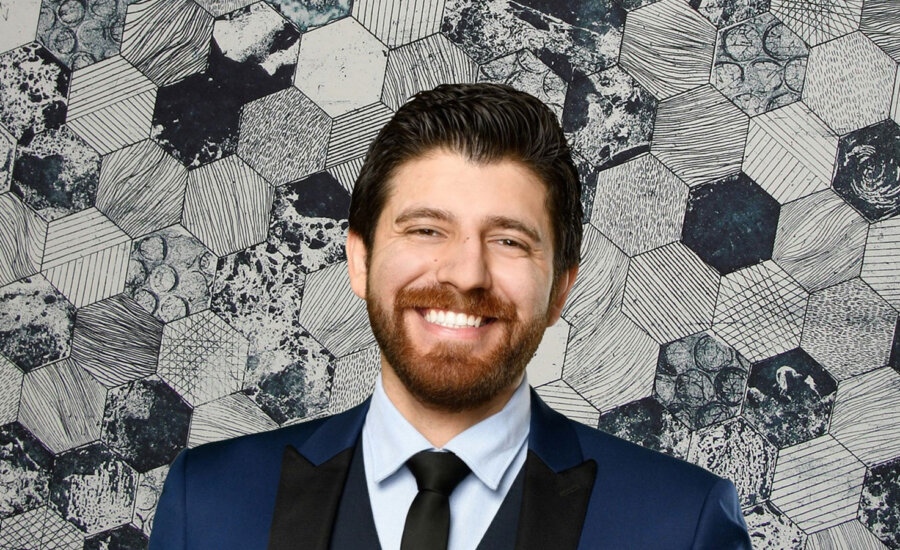Tareq Hadhad unpacks his investing journey and how Peace By Chocolate came to be
The Syrian refugee turned CEO of Nova Scotia-based Peace By Chocolate shares the secrets of his sweet success.
Advertisement
The Syrian refugee turned CEO of Nova Scotia-based Peace By Chocolate shares the secrets of his sweet success.

Tareq Hadhad is a Syrian-Canadian newcomer and founder and CEO of Peace by Chocolate, the family-owned chocolate business he founded in 2015. Hadhad was studying medicine and working at his family’s chocolate company in Syria in 2012, when their home and factory were destroyed in a bombing. The family was forced to seek safety in Lebanon, where Hadhad joined the medical relief efforts and advocated for peacekeeping.
Three years later, he and his family moved to Antigonish, Nova Scotia, as refugees. As they settled into their new home, Hadhad had the idea to re-establish the family chocolate business. He was named one of RBC’s Top 25 Canadian Immigrants and RBC’s Entrepreneur of the Year in 2020, and he has been awarded the Queen Elizabeth II’s Platinum Jubilee Medal. His family’s story is the subject of the best-selling book Peace by Chocolate, as well as a feature film by the same name.
Warren Buffett for his massively known successful investing approach. I am also inspired by how celebrities like Oprah Winfrey and Ryan Reynolds use their wealth and platforms to serve their community.
I enjoy spending my free time learning new skills, staying active and exploring nature. I also like to explore new hobbies and spend quality time with family and friends.
I would likely be writing and blogging more, exploring different cultures, and pursuing new passions while focusing on serving others.
My first memory is learning to save with the money box that my grandmother bought me when I was eight years old. It’s the most significant gift of my childhood. It taught me to save up my allowance to buy a special toy I wanted. I also learned the value of patience and the satisfaction of achieving a financial goal because I couldn’t open it until it was full.
When I opened my money box, I bought a bicycle, Pokémon cards and LEGO sets. This was a significant purchase for me, and I had to save for a while to afford it.
My first job was working at my father’s chocolate factory when I was a teenager, helping in the packaging department. The first part of my job was enjoyable since I was always eating chocolate while I worked. The first real paycheque I earned, I saved a portion and treated my friends to a nice dinner.
The importance of financial planning, budgeting and living within my means. I realized the significance of saving for the future and avoiding unnecessary debt. If I could do anything differently, I would have started investing earlier.
The best money advice I’ve received is to diversify your earnings streams and never put your eggs all in one basket. As my father used to always tell me, just like in the business world, “If your financial advisor isn’t smarter than you, you are doing it wrong.”
The worst money advice I’ve received is to always buy the cheapest option. A piece of less bad advice was to invest only in the stocks of big companies.
I can make use of both scenarios, but I would prefer receiving a smaller amount of money regularly for life. It provides financial security and a consistent income stream, which is important for long-term financial planning.
The most underrated financial advice is the power of investing early. Many people underestimate how small consistent savings and investments can grow significantly over time.
That you need a financial advisor to grow money. While financial advisors can provide guidance, you don’t really need one to grow your money especially if you are in a low-to-mid income bracket. Nowadays, using technology and the internet, anyone can find many trustworthy resources available for self-education. With careful research and a clear financial plan, you can manage your finances and investments effectively on your own until bringing in experts and advisors becomes necessary to have a customized plan.
One of my money regrets is not investing early enough in some of the areas I am very passionate about.
Value means getting the most out of every penny that’s spent. I’m okay with spending money on quality education and experiences, even if it seems expensive at first, because they can give lasting value and personal growth.
My first car. It took me a lot of time to research and decide on the right vehicle that matched my needs and budget. I had to compromise on some features to make sure I paid for it all upfront.
Debt can be used as you want. It can help you grow or it can have severe consequences and become a burden. Like every other aspect of money, debt should be used strategically and responsibly. Good debt can be an investment in one’s future. However, our societies struggle with consumerism and we buy a lot of things we don’t need. That’s why excessive consumer debt should be avoided.
The Year of Less by Cait Flanders. While I didn’t agree with all of it, I learned about mindful consumption and regaining financial control. The book encouraged my goal-setting and discipline and underscored the importance of community.
To learn how I can achieve my financial targets and give back to the community for the causes that I am passionate about.
I prefer to own a home for long-term stability, but as someone on the move, I know rent is a good option as well to achieve short-term goals.
Buying is generally my preference, but it depends on the asset.
Both are essential. Saving provides liquidity and a safety net while investing is important for growth over time.
Budgeting is crucial for managing finances effectively.
Share this article Share on Facebook Share on Twitter Share on Linkedin Share on Reddit Share on Email